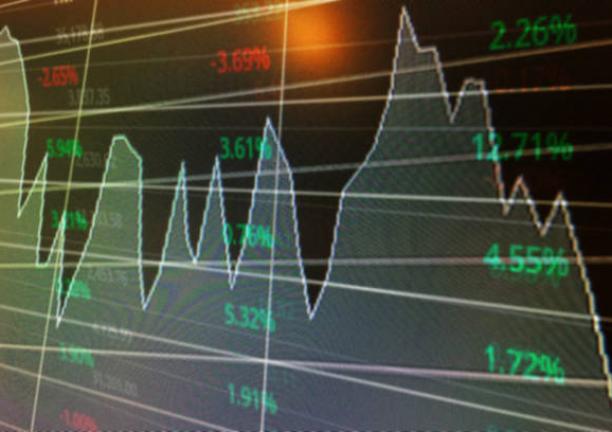The Bottom Line: 59 new listings of sustainable mutual funds and ETFs during the first six months of the year offer investors additional investment options.
A combined total of 59 sustainable mutual funds and ETFs were launched during the first six months of 2023 versus 40 funds last year
A combined total of 59 sustainable¹ mutual funds and ETFs were launched during the first six months of 2023, though the end of June². Of these, 35 new fund launches consisted of registered mutual funds, for a total of 139 share classes. These were dominated by the launch of 27 sustainable funds/120 share classes linked to the introduction of Fidelity sustainable target date funds. At the same time, 24 ETFs were listed during the first six months of the year. This compares to a combined total of 40 funds issued during the comparable period in 2022, for an increase of 47.5%.
While ETFs dominated the new issue calendar in the first three months of the year, leadership was assumed by mutual funds in the second quarter of 2023. In the first quarter, 18 ETFs were launched, followed by six ETFs in the second quarter. On the other hand, only six mutual funds/15 share classes were introduced in the first three months of 2023 while a total of 29 mutual funds/127 share classes were brought to market during the second quarter.
Mutual fund listings were dominated by Fidelity’s launch of two separate sustainable target date mutual fund investment products
The 27 mutual fund offerings introduced by Fidelity involved the launch of two separate sustainable target date mutual fund investment products pitched to (1) employer-sponsored retirement plans, Individual Retirement Accounts, 403(b) plans, etc. as well as (2) through investment professionals and individuals. The target date funds intend to invest at least east 80% of assets in underlying funds that are (i) Fidelity funds that invest in securities of issuers that have proven or are displaying improving sustainability practices or positive environmental, social and governance (ESG) characteristics, (ii) Fidelity index funds that track an ESG Index, and (iii) Fidelity funds that do not have a principal ESG investment strategy but invest at least 80% of assets in U.S. and international sovereign or government-related debt securities that are believed to have positive ESG characteristic. Fidelity uses its own proprietary ESG rating process to identify eligible securities, including third-party data. In addition, Fidelity will avoid investments in issuers that are directly engaged in, and/or derive significant revenue from, certain industries.
A pullback in ESG investment product offerings has not been observed
A recently published research report disseminated by RBC Capital Markets and reported on Bloomberg posits that fund managers “have grown weary of the growing political scorn aimed at the environmental, social and governance label.” According to the report, “thematic exchange-traded funds – ones that focus on stocks around a particular subject – have taken over as the most common way to launch products in areas like clean energy or gender diversity.” This is based on RBC’s research showing that 56% of sustainable ETF debuts so far in 2023 have been labeled thematic rather than ESG.
Based on research conducted by Sustainable Research and Analysis, RBC’s conclusion is premature. First, as noted above, the pace of new sustainable mutual funds as well as ETF listings gained momentum during the first six months of the year. A total of 59 funds were launched in 2023 versus 40 funds in the comparable period last year, for an uptick of almost 48%. This included 24 ETFs, down slightly from 28 listed in 2022 but displaying a strong record of new listings in the first quarter, and 35 mutual funds, up from just 12 last year over the same period.
A combined total of 24 ETFs were launched in 2023, including nine funds that reference ESG in their name, or 37.5% of funds. This compares to 40% of ETFs in operation at the end of June 2023 that reference ESG in their names, for a slight 2.5% differential. As for mutual funds, none of the new sustainable funds launched in 2023 reference ESG in their names. This, however, should be viewed within the context of the existing universe of sustainable mutual fund offerings as of June 2023, 509 funds in total/1333 share classes, of which only 12% reference ESG in their names.
The term sustainable appears more often than ESG in fund names generally, but regardless of fund name, a sizable number of newly launched or existing sustainable mutual funds and ETFs, as defined, disclose in regulatory filings that ESG considerations factor into their investment decision making.
Number of mutual funds and ETFs launched during the first six months of the year-2023 vs. 2022
[ihc-hide-content ihc_mb_type=”block” ihc_mb_who=”unreg” ihc_mb_template=”4″ ]
contact us for this content.
[/ihc-hide-content]
Source: Morningstar Director and Sustainable Research and Analysis
¹ Sustainable funds an overarching term that encapsulates values-based funds, impact funds, thematic funds and funds that integrate ESG. These are not mutually exclusive and may also combine proxy voting as well as shareholder/bondholder advocacy. ² New mutual fund launches exclude the addition of share classes to existing funds.





